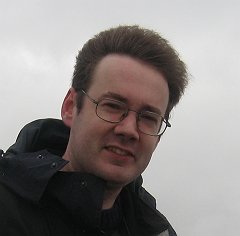Idris 2: Quantitative Type Theory in Practice
Fri 16 Jul 2021 11:00 - 11:20 at ECOOP 1 - Types / Program Analysis (time band 3) Chair(s): George Fourtounis
Dependent types allow us to express precisely what a function is intended to do. Recent work on Quantitative Type Theory (QTT) extends dependent type systems with linearity, also allowing precision in expressing when a function can run. This is promising, because it suggests the ability to design and reason about resource usage protocols, such as we might find in distributed and concurrent programming, where the state of a communication channel changes throughout program execution. As yet, however, there has not been a full-scale programming language with which to experiment with these ideas. Idris 2 is a new version of the dependently typed language Idris, with a new core language based on QTT, supporting linear and dependent types. In this paper, we introduce Idris 2, and describe how QTT has influenced its design. We give examples of the benefits of QTT in practice including: expressing which data is erased at run time, at the type level; and, resource tracking in the type system leading to type-safe concurrent programming with session types.
Lecturer in Computer Science at the University of St Andrews
Wed 14 JulDisplayed time zone: Brussels, Copenhagen, Madrid, Paris change
18:30 - 19:30 | Types (time band 1)ECOOP Technical Papers at ECOOP 1 Chair(s): Sam Tobin-Hochstadt Indiana University | ||
18:30 20mTalk | Refinements of Futures Past: Higher-Order Specification with Implicit Refinement Types ECOOP Technical Papers Anish Tondwalkar University of California, San Diego, Matthew Kolosick University of California, San Diego, Ranjit Jhala University of California at San Diego DOI | ||
18:50 20mTalk | Scope States: Guarding Safety of Name Resolution in Parallel Type Checkers ECOOP Technical Papers DOI File Attached | ||
19:10 20mTalk | Idris 2: Quantitative Type Theory in Practice ECOOP Technical Papers Edwin Brady University of St Andrews, UK DOI Media Attached | ||
